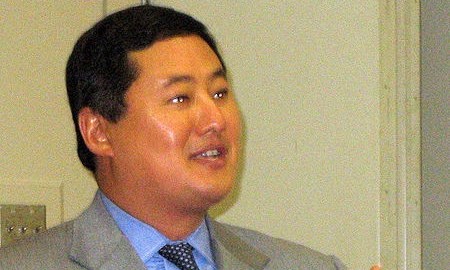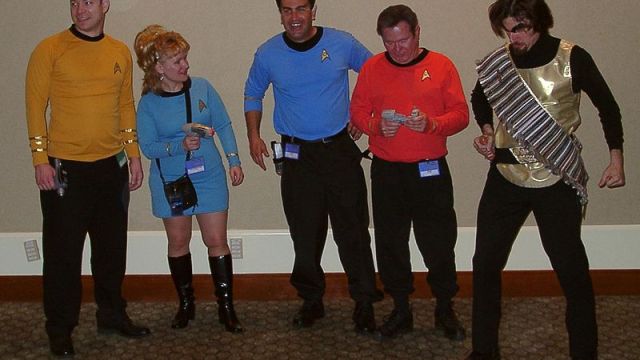Torturing the Law

After a long delay, the Department of Justice’s Office of Professional Responsibility (OPR) released its report on whether the Bush administration lawyers who wrote the notorious memos justifying the use of torture had committed professional misconduct. The OPR strongly condemned the memos and recommended both the lawyers—John Yoo and Jay Bybee—face discipline for their role in writing them. But Associate Deputy Attorney General David Margolis decided to ignore the OPR’s politically awkward recommendation that Yoo and Bybee be referred to their state bars for discipline.
At the National Review, Bull Burck and Dana Perino argue that Margolis’ verdict shows that what Yoo and Bybee did was at worst an honest mistake, and that the OPR lawyers were incompetent, partisan hacks to have suggested otherwise. But, as Glenn Greenwald says, it’s a real stretch to read Margolis’ decision as excusing Yoo or Bybee. Margolis explained (pdf) that while he had decided there wasn’t quite enough evidence to conclude that Yoo had “intentionally or recklessly provided misleading advice to his client,” it was “a close question.” Margolis added that the argument Yoo made in the memos that Bybee signed off on was “extreme,” showed “poor judgment, and represented “an unfortunate chapter in the history of the Office of Legal Counsel.”
The fundamental legal issues aren’t that complex. Because we’ve ratified the Geneva Conventions according to the Constitution they have the force of law within the U.S. Common Article 3 of the Third Geneva Convention outlaws the “mutilation, cruel treatment and torture” of as well as the “humiliating or degrading treatment” of anyone not actively engaged in combat—that is, of any captive. Section 2340 of the federal criminal code likewise makes it an offense punishable by up to 20 years in prison to “inflict severe physical or mental pain or suffering” on anyone in custody. The point of the techniques authorized by Yoo and Bybee, of course, is precisely to inflict severe physical and mental pain on prisoners and to humiliate them in order to make them more responsive to pressure. After WWII we treated waterboarding in particular as a form of torture and a war crime. And a U.S. appeals court ruled that waterboarding was torture in United States v. Lee in 1981. In his confirmation hearings, Attorney General Eric Holder said unequivocally that waterboarding was torture, and that “it would violate the international obligations that all civilized nations have agreed to.” John McCain has likewise told Greta van Susteren that waterboarding is “certainly torture” and that it is “in violation of the Geneva Conventions, of the international agreement on torture, treaty of torture signed during the Reagan administration.” And four retired military judge advocates general sent a letter to the Senate Judiciary Committee saying that “the relevant rule—the law—has long been clear: waterboarding detainees amounts to illegal torture in all circumstances.”
But in the memos Yoo cherrypicks and misrepresents case law to make the case that torture could be permissible. He leaves out precedents—like U.S. v. Lee—which clearly run counter to the argument he is trying to make. The core of his argument is that no law or treaty can limit the power of the president to do whatever he sees fit to do to counter terrorism—including, Yoo has said, torturing people by “crushing the testicles” of their sons or ordering a village of civilians to be “massacred.” This view—shared by Dick Cheney—that the president’s power has no limits if he’s ostensibly acting to protect the country, is a fringe view at best, because taken to its logical conclusion it renders the other branches of government irrelevant. And if the Founders agreed on one thing, it was that the president must not have the unlimited powers of a king, but must be bound like anyone else by the rule of law.
Margolis admits that this is shoddy work. But Margolis absolves Yoo of professional misconduct because Yoo actually seems to believe in his interpretation of the law. It’s not unethical, in other words, to be a terrible lawyer. Nevertheless, as Jack Balkin says, no one should think that either Yoo or Bybee “behaved according to the high standards we should expect of government attorneys.” In any case—even setting aside the fact that Yoo is too accomplished a lawyer not to have known he was misrepresenting settled law—this is a weak defense. A lawyer is, after all, responsible for knowing the law. Nor is it much of an excuse to point out, as Margolis does, that when the memos were written nearly a year after September 11 we were in a state of national emergency. The laws of war, after all, were made to apply during wartime.
What matters is not that Yoo and Bybee somehow get what’s coming to them, but that by not holding them responsible for distorting the law, we ensure that other lawyers will do the same thing in the future. As Dahlia Lithwick says, “there can be no legal boundaries unless lawyers locate and police them.” After all, if you want to provide legal cover for your actions, you can always find some lawyer who will rationalize them, no matter how patently illegal they may be. If the lawyers aren’t held accountable for adhering to the law, then no one will be.





